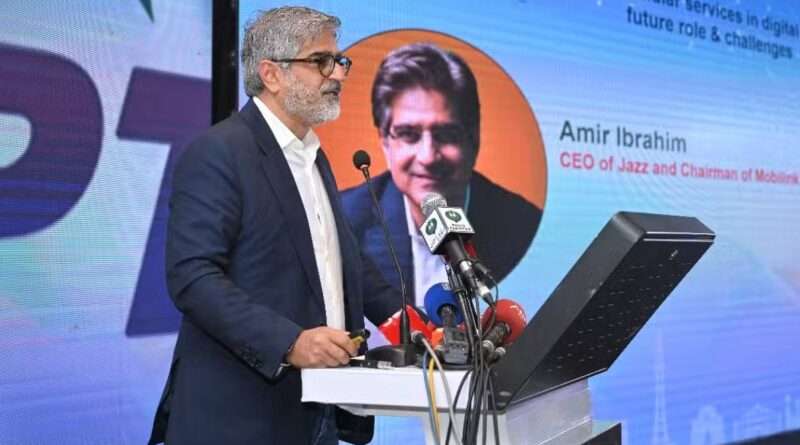Jazz CEO Urges Urgent Reforms to Support Pakistan’s 5G Transition
|
Getting your Trinity Audio player ready...
|
CEO of Jazz and Chairman of the Telecom Operators Association of Pakistan (TOA), Aamir Ibrahim, highlighted the critical need for reforms to address challenges in the telecom sector as Pakistan prepares for its 5G rollout in April 2025.
The Potential of 5G for Pakistan’s Digital Economy
Speaking at the National Broadband Network Forum, Aamir Ibrahim emphasized the immense potential of 5G technology to drive advancements in industries like e-commerce, healthtech, and agritech. He pointed out that 5G could significantly contribute to Pakistan’s digital economy by supporting emerging technologies such as health wearables, immersive gaming, and the Internet of Things (IoT).
Challenges to 5G Adoption in Pakistan
Aamir addressed key barriers hindering 5G deployment, with the affordability of 5G-capable devices being a major challenge. While over half of Pakistan’s population owns smartphones, only 1% of devices are 5G-enabled, with entry-level 5G devices priced at approximately PKR 60,000. Moreover, more than 50% of the population still relies on 2G devices, which limits the broader adoption of advanced technologies.
Economic Pressures and Rising Costs
The devaluation of the Pakistani Rupee by 110% since 2021 has significantly increased operational costs for telecom operators. Aamir noted that many sector-related fees are indexed to the US Dollar, compounding the financial burden. Additionally, Pakistan remains spectrum-starved, with only 1.1 MHz of spectrum available per million people. He urged the government to align spectrum pricing with local economic conditions and index payments to the Rupee to ease financial pressures on operators.
Long-Term Licensing Framework and Policy Reforms
To ensure sustainable investment, Aamir proposed implementing a 20-year licensing framework with a five-year moratorium and interest-free payment options. He also emphasized the importance of reforms to make 5G equipment and smartphones more affordable and accessible to the public.
Recognizing Telecom as Critical Infrastructure
Aamir highlighted the need to classify telecom as critical infrastructure, which would enable operators to benefit from industrial power tariffs, reducing energy costs. This step, he argued, is crucial for lowering operational expenses and fostering growth in the telecom sector.
Improving the Spectrum Auction Process
The Jazz CEO called for improvements in the spectrum auction process, advocating for competitive designs to encourage higher participation and better outcomes. Drawing on lessons from previous auctions, Aamir stressed the importance of creating an environment that supports operators and aligns with the goals of digital transformation.
The Economic Impact of Enhanced Broadband Connectivity
Concluding his remarks, Aamir underscored the significant economic potential of improving broadband connectivity. He stated that increased broadband penetration could boost Pakistan’s GDP by 1.4%. To achieve this, he called for collaborative action from all stakeholders to ensure the success of the 5G rollout.
A Call to Action for Pakistan’s Digital Future
Aamir Ibrahim described the upcoming 5G transition as a pivotal step in advancing Pakistan’s digital economy. He urged the government and industry stakeholders to work together to unlock opportunities for growth, innovation, and digital transformation.
See Also:




